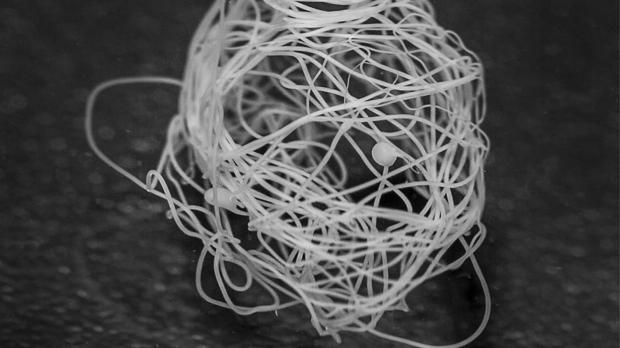
Breaking News
 BACKWARD ROLLING CONFIRMED: 1,624 Contracts Just Demanded Delivery NOW ($100 Silver is Inevitable)
BACKWARD ROLLING CONFIRMED: 1,624 Contracts Just Demanded Delivery NOW ($100 Silver is Inevitable)
SEMI-NEWS/SEMI-SATIRE: January 11, 2026 Edition
 "Appalling": Debanking Explodes To Record High In Britain
"Appalling": Debanking Explodes To Record High In Britain
 MTG explodes in astonishing f-bomb laden tirade as Trump orders Secret Service probe:
MTG explodes in astonishing f-bomb laden tirade as Trump orders Secret Service probe:
Top Tech News
 World's most powerful hypergravity machine is 1,900X stronger than Earth
World's most powerful hypergravity machine is 1,900X stronger than Earth
 New battery idea gets lots of power out of unusual sulfur chemistry
New battery idea gets lots of power out of unusual sulfur chemistry
 Anti-Aging Drug Regrows Knee Cartilage in Major Breakthrough That Could End Knee Replacements
Anti-Aging Drug Regrows Knee Cartilage in Major Breakthrough That Could End Knee Replacements
 Scientists say recent advances in Quantum Entanglement...
Scientists say recent advances in Quantum Entanglement...
 Solid-State Batteries Are In 'Trailblazer' Mode. What's Holding Them Up?
Solid-State Batteries Are In 'Trailblazer' Mode. What's Holding Them Up?
 US Farmers Began Using Chemical Fertilizer After WW2. Comfrey Is a Natural Super Fertilizer
US Farmers Began Using Chemical Fertilizer After WW2. Comfrey Is a Natural Super Fertilizer
 Kawasaki's four-legged robot-horse vehicle is going into production
Kawasaki's four-legged robot-horse vehicle is going into production
 The First Production All-Solid-State Battery Is Here, And It Promises 5-Minute Charging
The First Production All-Solid-State Battery Is Here, And It Promises 5-Minute Charging
 See inside the tech-topia cities billionaires are betting big on developing...
See inside the tech-topia cities billionaires are betting big on developing...
Large quantities of synthetic spider silk spun on demand

Unfortunately, spiders individually produce only small amounts of silk and wrangling enough of them into spooling out commercial quantities is nigh on impossible. Now a new prototype process that mimics the natural spinning process has been created, using bacteria and spider silk proteins to create large quantities of artificial web threads on demand.
Normally stockpiled as a watery solution in the silk glands of a spider, silk is made up of a number of proteins that solidify when spun into a fiber outside the body of the arachnid. The pH gradient found in these silk glands also affects individual segments of the proteins they contain to ensure that the fiber is formed quickly and consistently in exactly the right place.
Researchers Anna Rising, Jan Johansson, and Marlene Andersson working at the Swedish University of Agricultural Sciences (SLU) and at Karolinska Institutet took advantage of this knowledge to help create an artificial spider silk protein in bacteria that can then be bred en masse to produce industrial quantities of web material.

 Storage doesn't get much cheaper than this
Storage doesn't get much cheaper than this

